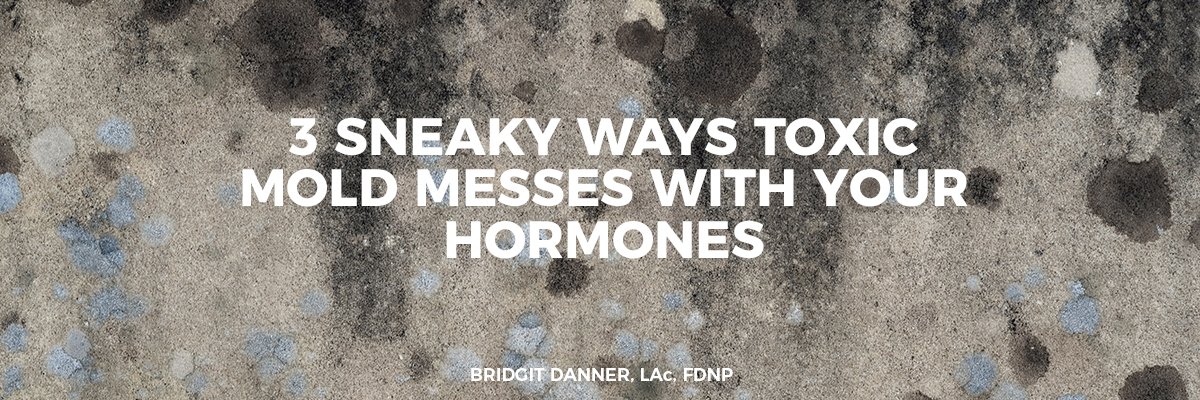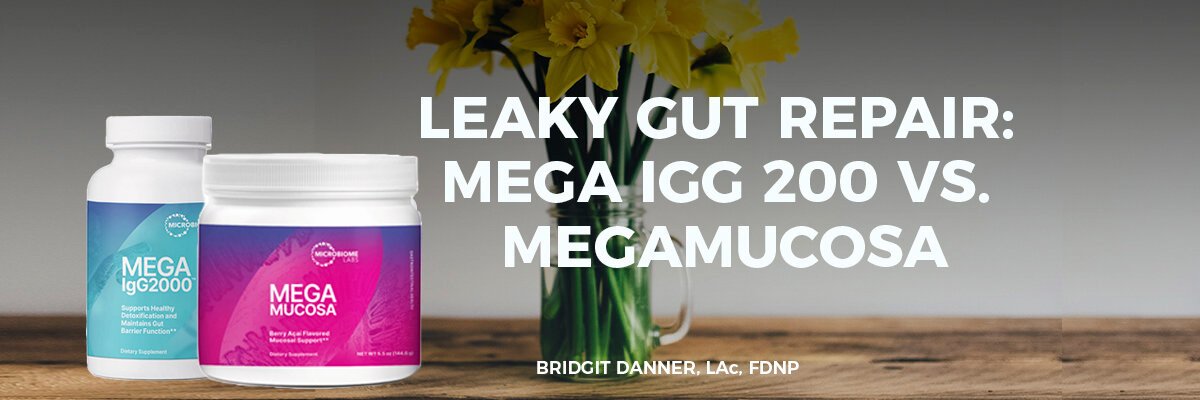Are you struggling with symptoms of hormone imbalance like mood swings, weight gain, low libido, hot flashes, or fatigue? Many people just accept hormonal imbalance as part of aging. When often, there’s another sneaky culprit to blame: mold.
Toxic mold can wreck your hormones, no matter how healthy your diet and lifestyle are. This article will cover three ways mold toxicity can impact your hormones and offers a helpful resource to find out if it could be affecting you.
1 - Mold & Sex Hormones
One chronic symptom I dealt with for many years while undiagnosed with mold was breakthrough bleeding. This is when you have some menstrual bleeding when it’s not time for your period yet, usually around day 15-18 of your cycle.
This condition is usually a result of low progesterone production. This can be due to poor egg quality due to age, stress, malnutrition, or, yes, toxic mold. Unfortunately, I didn’t learn this for a long, long time, so I hope you are learning it a lot sooner!
In 2016 I ran my first DUTCH hormone test that showed I had very low hormone production along with probable hypothyroidism. My hormone production was at grandma levels, but I was 42.
This is one sign of mold illness: low hormone production. You can also have high estrogen, but in my practice, I more commonly see low hormone production. This can happen for men or women, and can result in:
Low sex drive
Weight gain
Man boobs
Erectile dysfunction
Infertility
Irregular periods
Difficult or early menopause
Fatigue
Hair loss
Sugar cravings
Mood changes
Brain fog
It wasn’t until about 2019 when I read Toxic by Dr. Neil Nathan that a big lightbulb went off about how inflammatory cytokines, increased by mycotoxins, result in low hormone levels.
Dr. Nathan explains that this influx of cytokines affects the hypothalamus, the part of your brain in charge of releasing the most hormones. Your hypothalamus also regulates your pituitary, known as the ‘master gland.’
As you can see, when your hypothalamus is off, so are your hormones. For example, one mycotoxin, zearalenone, (ZON) hits estrogen receptors especially hard, which really messes with your reproductive tract. In fact, a 2017 report in the journal Toxins shared that ZON can cause: (1)
Decreased fertility
Precocious puberty
Changes to the weight of the thyroid, adrenal, & pituitary glands
Alteration of progesterone and estradiol levels
Fibrosis and hyperplasia in the uterus
Breast cancer
Endometrial cancer
Yikes! Here’s another example – the T-2 mycotoxin, produced by the trichothecene mold increases your risk of infertility by lowering FSH-stimulated progesterone production. (2)
However, there are additional reasons why your hormones may be off right now:
Intestinal permeability AKA leaky gut (inflammation, liver burden, immune disruption)
Dysregulated microbiome (poor detoxification of hormones, mold, & chemicals)
Toxic burden on liver inhibiting hormone detoxification
Poor nutrition
Normal aging
Overweight (fat tissue producing estrogen)
Constipation inhibiting detox
Lymphatic stagnation/poor overall detoxification
I spent several years specializing in women’s health and fertility. It’s not an easy subject to teach as so many things influence hormonal health, and it’s our human nature to want a quick fix.
Know that there’s more to your hormones than stress, age, or ‘God punishing you,’ which is how many women feel in the throes of a particularly violent period or hot flash!
2 - Mold & Metabolic Hormones
Mold illness impacts your hormones another way - by sabotaging your weight. As we’ve covered before, mycotoxins increase inflammatory cytokines in the body. This chronic inflammatory state promotes insulin resistance and induces leptin resistance. (3)
Leptin is a hormone released from your fat cells and is crucial for fat burning. Known as the ‘satiety hormone,’ leptin is what tells your body you’re full. However, mold illness can make leptin’s signals go awry.
How? Well, if your body is constantly bombarded by mycotoxins, it activates your body’s innate immune system. Eventually, this damages leptin receptors, causing a state of leptin resistance. (4) What this means is no matter how much you eat, your body never feels satisfied. Leptin resistance also makes it more challenging for your body to burn fat.
The chronic inflammation that comes with mold illness also overloads the liver, increasing your risk of insulin resistance. Plus, when your liver is burdened with mycotoxins, this damages your mitochondria, causing negative effects on your appetite and energy production.
3 - Mold & Thyroid Hormones
Toxic mold impacts your thyroid hormones as well. In fact, hypothyroidism and/or Hashimoto’s are common with mold illness. Here are a few reasons why:
The liver, an important site of thyroid hormone conversion, is burdened by mycotoxins
Poor gut health (see below) can contribute to hypothyroidism or autoimmunity
Low iron, common due to mold illness, can contribute
Low glutathione levels, common in mold illness, can contribute
Direct destruction of the thyroid by mycotoxins
Is Mold at the Root of Your Hormone Imbalance?
If you feel like you’ve tried everything and are still struggling with symptoms of hormone imbalance, mold could be to blame. Want to find out? << Take the FREE Toxic Mold quiz! >>
This short 1-minute quiz will help you determine if mold is behind your symptoms or if further testing is needed. You owe it to yourself to rule out mold as a possible cause – so you can get on the road to better hormone health today. << Gain instant access to the Toxic Mold quiz here!
Bridgit Danner, LAc, FDNP, is trained in functional health coaching and has worked with thousands of women over her career since 2004. She is the founder of Women’s Wellness Collaborative llc and FunctionalDetoxProducts.com.
Check out her easy 5-Day DIY Detox Guide here!












This recipe is so easy it’s barely a recipe! It’s basically traditional tuna salad but with canned salmon instead. Tuna is delicious but unfortunately it’s now a fish that is commonly contaminated with heavy metals. But there is a really easy solution to your tuna salad dilemma and that is simply replacing it with canned salmon!